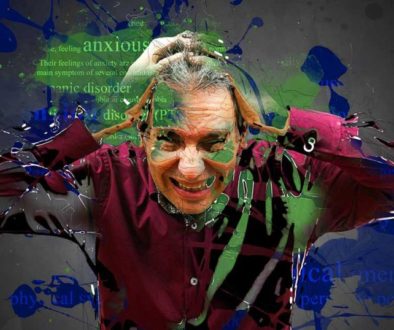An Explanation of the Symptoms of Anxiety
Many of us feel anxious from time to time, particularly when events of life become uncommonly stressful. However, those with an anxiety disorder will find that the stress is rarely relieved and it begins to affect all aspects of their lives. Sometimes the symptoms of anxiety appear to come out of nowhere and they can affect people of any age; children and adults alike.This article will provide an overview of the symptoms of anxiety so you know how to recognize it and determine when you might need professional help in dealing with it.
Symptoms of anxiety can be both psychological and physical in nature. Some of the physical signs might include a general feeling of edginess or tension or difficulty falling asleep and staying asleep all night.Anxiety can get in the way with your focus and concentration, and may make you feel tired all the time.Shortness of breath and rapid heartbeat are additional physical symptoms of anxiety that some people experience.
Irritability over even minor inconveniences is one of the most common psychological symptoms of stress. Many with anxiety also go through their days with a general feeling of dread, like a dark cloud always hovering, hanging over them.If you tell someone with anxiety that their thoughts are not rational or logical, they will agree with you but still be unable to stop the fears from running through their minds. Negative thoughts and worries translate into an inability to relax, and difficulty concentrating and sleeping, leading to a vicious cycle that is difficult to break.
The challenge is to determine when to deal with the symptoms of anxiety at home and when to talk to your doctor about your concerns and a possible treatment plan. The first factor to consider is just how much your symptoms of anxiety are impacting your overall quality of life and your daily activities.If they are affecting your productivity at work or your relationships with others, it might be worth talking to your doctor about your treatment options.It is also a good idea to talk to your doctor if the physical symptoms of anxiety are becoming more pronounced and beginning to affect your overall health.
Medical professionals have a wealth of options to help patients deal with their symptoms of anxiety and enjoy a higher quality of life. Many anxiety sufferers will begin with a medication that can effectively alter brain chemistry to reduce many of the bothersome symptoms of anxiety.In addition to medication, doctors will often prescribe psychotherapy sessions to help patients modify thought processes that lead to the constant worry and stress.Most patients find that using the right combination of medication and psychotherapy is the most effective path to fewer anxiety symptoms and a higher quality of life overall.


